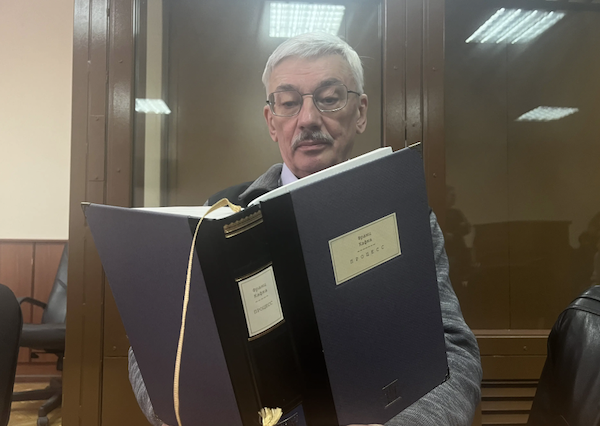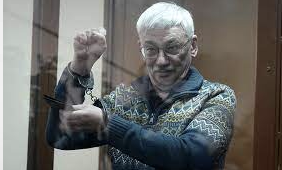Accused of ‘Public actions aimed at discrediting the use of the Russian armed forces for protecting the interests of the Russian Federation and its citizens, and preserving international peace and security'” has landed him the jail time at his re-trial because the authorites weren’t satisfied by the result of the first.
The BBC
Oleg Orlov looked calm as he sat waiting for the judge to deliver the verdict.
Room 518 in the courthouse was packed with well-wishers, foreign ambassadors and journalists.
The judge entered the courtroom and began reading out the verdict.
She declared the veteran human rights campaigner guilty of “repeatedly discrediting” the Russian armed forces.
Having named the crime, she announced the punishment: Oleg Orlov, co-chair of the Nobel Peace Prize-winning organisation “Memorial”, was sent to prison for two and a half years.
He was handcuffed and, minutes later, led out of the courtroom by police.

This had been a re-trial.
In October 2023, the court had delivered a guilty verdict, too. But the punishment then had been considerably milder.
Oleg Orlov had received a 150,000 rouble fine (£1,290; $1,630) and walked free. Prosecutors complained that the sentence was too soft. A higher court cancelled the ruling, and a re-trial was ordered.
It was a sign that in Russia the authorities were becoming increasingly intolerant of public criticism.

In protest at being forced back to court, Oleg Orlov paid little attention to proceedings second time round. Instead, he sat in court reading a copy of The Trial, Franz Kafka’s classic on the absurdity of life and injustice.
When I interviewed him last year ahead of his first trial, he insisted he had done nothing wrong.
“The article I’m being tried under is ‘Public actions aimed at discrediting the use of the Russian armed forces for protecting the interests of the Russian Federation and its citizens, and preserving international peace and security’,” he told me.
“First of all, the Russian Constitution guarantees freedom of speech. I wrote an article presenting my assessment of events. Prosecuting me for that violates the constitution.
Read more




